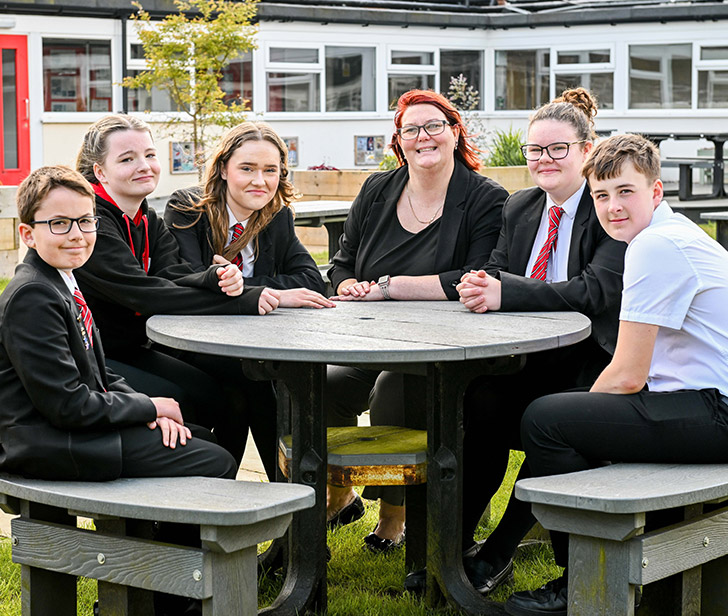History
1. Rationale
We believe that students deserve a broad and ambitious History curriculum, rich in skills and knowledge, which immerses students in a range of cultures and engenders an enquiring and critical outlook on the world. Our History curriculum will give students the opportunity to study issues at a local, national and international level in Ancient, Medieval, Early Modern and Modern time periods. We will exploit opportunities to enrich our curriculum by providing on and off-site subject or topic related experiences, encouraging students to contribute to the life of the school and the community, including remembrance activities. Our curriculum will build on their understanding of the importance of British values, including democracy, the rule of law, individual liberty and tolerance and respect whilst improving their spiritual, social, moral and cultural understanding.
2. The rationale for Sequencing (Scope and Rigour)
Our History curriculum is taught to students using with a coherent chronological framework because it allows key concepts and themes to be interwoven and we promote the ability to see the evolution of concepts. Each topic provides the opportunity to measure pace, extent and trends in change and continuity over time, allowing students to make relevant links between historical episodes. Students will be given the opportunity to develop a rich depth of knowledge whist considering the theories of cognitive load.
The curriculum is designed with opportunities to develop an understand Britain's influence on the wider world, challenge traditional ideas and consider whether the British influence was always positive. We study the history and influence of different peoples and places across time, and assess the impact of events on individual and communities. During their History course students will be exposed to a high level of historical and conceptual vocabulary and use this to learn to interpret a broad range of sources including visual sources and propaganda. We will consider different peoples' perspectives on issues and events in order to challenge received wisdom about historical figures and issues. Whilst covering content we will develop an understanding of how to apply and write about historical concepts such as causation; continuity and change; significance; consequence; diversity.
2.1 Why?
The curriculum has been designed to ensure that students gain an appreciation of divergent perspectives, rather than sticking to established historical norms. For example, in studying the Second World War, students are challenged to see the impact of the war on other countries that were attached to Britain through the Empire. They then seek to question the motives of Churchill's decisions to divert resources to Britain and the impact that had on Bengal. Furthermore, we introduce students to characters and groups who have traditionally been ignored such as LGBT+ and Native Americans. This ensures that students receive a rounded education in History and is essential in teaching attitudes of tolerance. In History lessons, students will regularly apply new knowledge to conceptual questions. Each topic is framed around a challenging historical question which is linked to a second order concept. Lessons mirror this, with key questions forming the basis for each lesson enquiry. This will ensure students access and apply high level vocabulary with increasing rigour over their time in history classrooms. With plenty of opportunities to perform extended writing, we are confident that history in Kirton Acadmey is a highly rigorous and incredibly purposeful part of our curriculum.
3. Research informing the Sequencing decisions.
Both Rosenshine's Principles of Instruction and Cognitive Load Theory have informed our curriculum sequencing and implementation. Both recognise the importance of memory in building schemas required to develop mastery and retention. Our schemes of work are sequenced so that students revisit skills and build upon prior learning over time, chunking more complex concepts into smaller parts. By limiting the amount of new information students are exposed to at one time, we can check understanding before moving the learning on. A scaffolded approach, combined with modelling and step by step success criteria means students are exposed to new skills and concepts gradually, building strong foundations and links across texts and skills.
Each topic is planned with a structure to provide students an opportunity to 'enquire' about topics in History and investigate using sources. This allows students the opportunity to develop historical skills whilst engaging with content.
4. Key Themes
| Key Theme | Overview |
|---|---|
| Belief Systems | Both religious and ideological beliefs, how these drive change, conflict and underpin history from ancient times to the present. |
| Monarchy and Power | How the role of those in power has changed, the causation and consequence of decisions made by rulers and ruled. How power can take different forms including democratic and non-democratic systems, their impact on those they control and wider impact. |
| Conflict and Change | How revolution, war and social conflict has driven change in both Britain and the wider world. How similarity and difference between conflicts has brought about social reform. |
| Society, Economy and Environment | Social history with a focus on the individual level of human lives. An understanding of how events and change impact societies throughout history. Considering the role of economy and environment in historic events. |
| Civilisation, Empire, Colonisation and Migration | The development of civilisation the ancient world and how it has influenced time periods after. The role of colonial history including the contribution of Britain to world history. Migration's significance in driving the expansion of ideas, beliefs and peoples. |
Download — 5-Year Learning Journey
Download — Curriculum Overview


